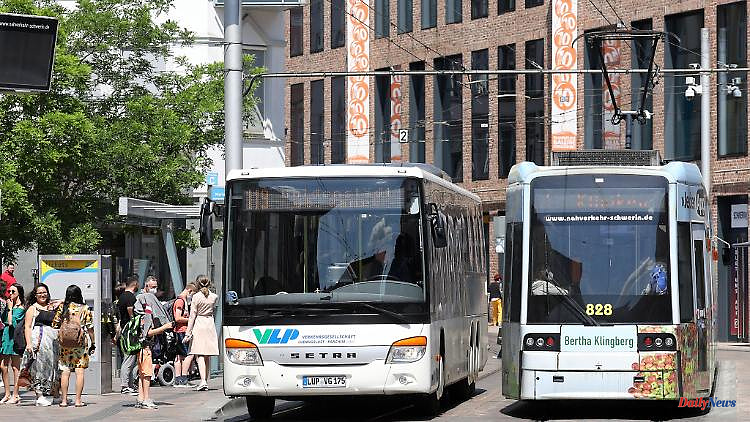Schwerin (dpa / mv) - bus and tram drivers as well as workshop employees and office workers in local public transport in Mecklenburg-Western Pomerania get more money. As the responsible employers' association (KAV) announced on Thursday in Schwerin, it agreed with the Verdi union on a gradual increase in wages and salaries for the around 2,400 employees in the affected local transport companies.
Retroactive to July 1, 2022, the fee tables are to be expanded from the previous two to four levels and the payments are to be increased by 3 percent each, but at least by 100 euros. According to Verdi, the increases are sometimes higher due to the introduction of additional levels and the crediting of the level durations achieved. Wages are to be increased by a further 3 percent on July 1, 2023 and July 1, 2024. In addition, the average weekly working time is to be reduced from 40 to 39 hours by September 1, 2024 with full wage compensation. The compromise that has now been agreed is still subject to the approval of the committees.ß
According to negotiator Karl-Heinz Pliete, Verdi entered the talks with a package of demands. This included a wage increase of two euros per hour, a minimum rest period of twelve hours or the reduction of working hours to 38 hours a week with full wage compensation. According to calculations by the employers' association, this would have meant an increase of around 18 percent. He refused.
As the managing director of the municipal employers' association, Carola Freier, said, the collective bargaining was influenced by the corona pandemic, massive increases in energy prices and steadily rising inflation. These factors placed a heavy burden on local public transport companies. "With the result of the collective bargaining agreement, they are clearly taking on their responsibility as social partners even in difficult times, but are also reaching their financial limits," said Freier. The sectoral collective agreement for local transport companies is currently being used directly by five companies and indirectly by three companies.












